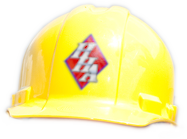source credit: Deposit Photos
Bottom line: We all want to be comfortable in our homes. Our heating and cooling units help us stay cozy no matter what the weather is outside. Sometimes we don’t realize all of the benefits of our HVAC systems, or when upgrades are necessary. You may notice an increase in dust or allergies – these can be better controlled through your HVAC. Here are some of our most frequently asked questions about heating and air conditioning:
Q: Why do I have dust in my home so soon after dusting?
A: Your home is built to be efficient. It’s likely you have windows and insulation that keeps air and heat in, while keeping the elements out. Because homes are insulated for this efficiency, it can decrease the pressure in the home, which leads to an accumulation of dirt, dust, and bacteria.
The good news is there’s an easy fix! By installing an Energy Recovery Ventilator (ERV), you’ll remove stagnant air, introduce fresh air, and prevent dust accumulation. You may also install a larger media air filter as opposed to a standard 1-inch pleated filters, which can be harmful for your heating and cooling system.
Q: Why am I always sick in my home or vacation home?
A: Remember how we mentioned homes are built well-insulated? That plays a factor here, as well! Because of this insulation, Volatile Organic Compound (VOC) gasses are trapped in the home. These gasses are released from everything from cleaning supplies to candles. When they mix with oxygen in the air, the chemical reaction causes health issues like sinus infections.
To combat VOCs, the Environmental Protection Agency recommends first installing an air ionizer for your home. This will deep clean your air, kill VOCs, and emit zero odor. Next, you should install a UV light with the ionizer that will kill 99.9% of contamination, eliminating biological debris, mold, mildew, and other harmful bacteria. You may notice additional dust or ball-like residue – no need to fret, this is just leftover from the VOCs. These can be swept up or vacuumed, and you are likely to see more in the first 30-90 days as VOCs are eliminated.
Q: How often should I replace my air filter?
A: For those with basic 1-3 inch air filters, you should plan to replace them every 1-3 months. If allergies are a problem for you or other members of your house, consider replacing your air filter more frequently, or even upgrading them. Homes with less foot and external traffic, such as a vacation home, can have fewer air filter replacements, or at least one replacement annually.
If you have a vacation home, live alone, have no pets and no allergy issues, change your air filter every 6-12 months. For standards homes without pets, change your air filter every three months. If you have one animal only, replace the air filter every two months. For homes with multiple pets or those with several allergy issues, filters should be changed every 20-45 days.
Your home is your sanctuary, and we want you and your family to feel safe and healthy all year-round. If you have questions, concerns, or think it may be time to upgrade your system, please reach out to us today at (731) 689-3651 or visit us online at harbinair.com. We look forward to hearing from you and making your house a home once again!


